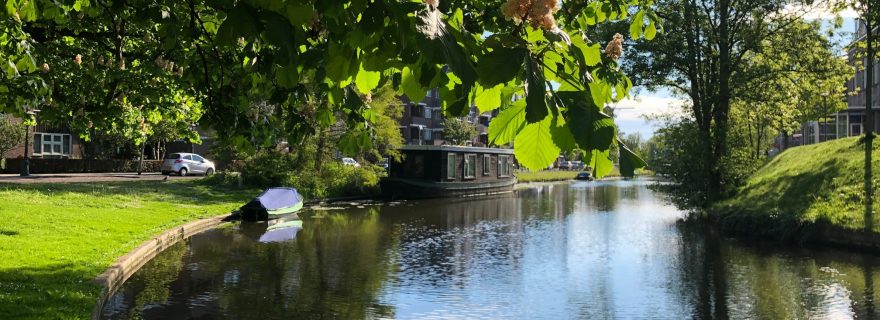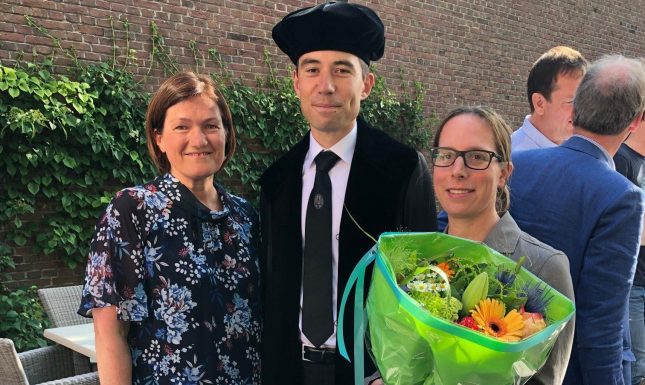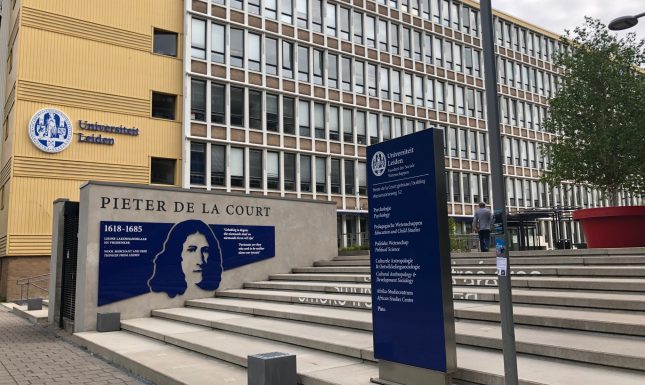The bright side of the lockdown: the experience of conducting PhD studies remotely
Beyond the lockdown: COVID-19 forces change in remote learning
For years I had been moving towards a long-cherished dream: pursuing a PhD. In my academic publishing role, the Leiden Manifesto, Leiden Ranking, and CWTS journal indicators had played an important part. The Centre for Science and Technology Studies (CWTS), seemed the most suitable place. However, I was wondering if this would be possible for a middle-aged mother of four living in a small Eastern European country.
I know that if you want to be accepted, you should express your willingness first. So, after several emails and conversations with Sarah de Rijcke and Ludo Waltman, it was agreed that I could do a PhD with remote supervision by Ludo Waltman and Vincent Larivière.
Remote studies before the pandemic
When my journey as a PhD candidate started in November 2018, Leiden University was already prepared well for distance learning. I was satisfied and comfortable with the remote workspace provided by the CWTS team, the university library catalogues, and monthly Skype meetings with my supervisor Ludo Waltman.
The library is the heart of any university, and the Leiden University Library exceeded my expectations. Not only because of the richness of e-journals, databases and e-book collections, but also because of features implemented by the smart and ever helpful librarians. The Leiden Search Assistant plugin allows you to search the Leiden University library catalogue, Web of Science, Google Scholar, WorldCat, and PubMed instantly, without having to navigate to these respective websites first. The browser extension ‘UBL Get Access’ provides immediate access to subscribed scholarly articles and e-books.
I feel profoundly grateful to Ludo Waltman, a generous and supportive supervisor. His calm guidance helps me steer my intended research projects. Ludo treats me like a colleague, gives me self-determination, and tolerates my limitations, spending hours reading my drafts, discussing, and showing better ways to communicate the findings.
The Centre for Science and Technology Studies (CWTS) offers a range of exciting possibilities for developing various skills in scientometrics. Remote access and newsletters keep me in touch. But, deep inside, I knew I had not fully explored many possibilities the university offered.
Quarterly trips to Leiden for several days each made remote studies more pleasant, and discussions in person foster the learning process and ongoing research. Also, PhD coordinator at CWTS Inge van der Weijden talked to me about research projects and the progress in my studies. I chatted with other PhD candidates. When I asked Wout Lamers advice on learning Python, he emailed me a comprehensive list of step-by-step suggestions. I realised that every visit to CWTS and in-person meeting accelerated my progress. Still, these short visits did not coincide with meetings of the Quantitative Science Studies group I belong to.
Meanwhile, attendance at university events such as The Inaugural Lecture by Ludo Waltman, or Life after the PhD made me feel a fierce pride in the university traditions.
Thus, after the first year, I decided to physically visit CWTS more often, which Ludo gladly accepted. Like many around the world, we did not expect a pandemic. My next trip was scheduled for March 17–20: the first week everyone at Leiden University started to work remotely.
How remote learning has changed since coronavirus struck
Breaking news a week before my next trip to Leiden: the situation was changing rapidly. On Thursday, March 12, the subject of an email received from the university said: “CORONA: teaching AND exams cancelled on Friday”. Several days later, the Lithuanian Government banned any travel abroad, and flights were cancelled.
I felt gutted to miss the arranged meetings. No one knows when it will finish. But Leiden University and CWTS were amazingly prompt to arrange entirely remote workspaces for all staff and students.
It was such a surprise: “You have been added to a staff team in Microsoft Teams”. This came right when my flight to Amsterdam had been expected to land. It made my day! I immediately installed Microsoft Teams and checked over its features. Over the next few days, all of CWTS, including the Quantitative Science Studies group, moved online with weekly, monthly, or occasional meetings. I have been invited to participate in any activities I could contribute to!
The lockdown has brought me closer to colleagues in the Netherlands than I expected. Who would have thought? Online features have also helped to bridge some gaps.
For instance, at next online Friday meeting, after a presentation delivered by Dr Ismael Rafols, I was curious about his and Professor Loet Leydesdorff’s discussion on the term ‘uncertainties’. Unfortunately, I had missed the title of a book suggested by the professor. Luckily, Vincent Traag posted it in the chat: The Honest Broker. This means nobody missed it. I was even able to download it immediately after the meeting from the library.
Another example comes from the CWTS virtual bar, such a great place to chat and exchange experiences. The following week with my non-virtual cup of coffee, I met Ismael Rafols and Thed van Leeuwen. After a short talk, they shared even more useful publications with me! To be honest, when I was in Leiden, I did not dare to disturb senior researchers.
The most exciting illustration arose from the weekly Quantitative Science Studies meetings moderated by Vincent Traag, where we share what we have recently discovered and discuss different topics and papers. This gave me the chance to present my research to colleagues, receive their feedback, and prepare an article for submission. I so much enjoy being part of this research group.
It is incredible how the lockdown changed my life! I am getting closer to colleagues and busier with my research. I do believe the pandemic has changed some of our habits forever. Hopefully, we can participate in all meetings virtually, as an option, even after CWTS staff return to their physical workplaces.
Even so, I do long to visit Leiden again soon, meeting people in person I have virtually shared with, and enjoying a coffee together.





0 Comments
Add a comment